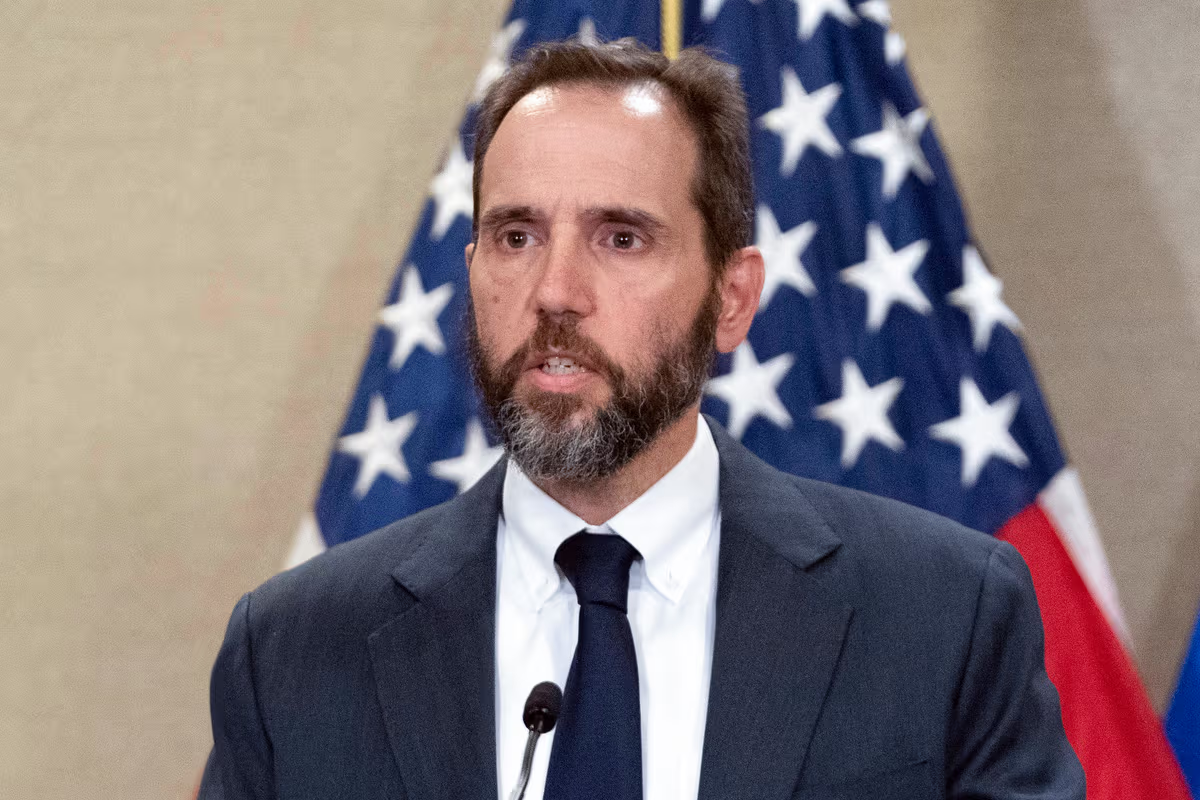Jack Smith Suffers His First January 6 Defeat, and It Could Provide Trump With a Template
An appeals court rules that a congressman’s text messages expressing doubt about certifying the 2020 election are constitutionally protected.

The decision of an appellate panel to rebuff Special Counsel Jack Smith’s request for phone records from a congressman, Scott Perry, puts into sharp relief the challenge of breaching the constitutional privileges of Congress, even when it involves the prosecution of a president.
The opinion, written by Judge Neomi Rao and joined by Gregory Katsas and Karen Henderson, all riders on the District of Columbia Circuit, holds that Mr. Perry’s correspondence stored on his phone and relating to certification of the 2020 presidential vote are “quintessential legislative acts” entitled to the protection of the Constitution’s Speech or Debate clause.
That section of the national parchment, found in Article I Section 6, ordains that “for any Speech or Debate in either House,” representatives or senators “shall not be questioned in any other Place.” Meaning, they are beyond the reach of the courts or any other law enforcement process except impeachment. It is an ancient privilege, absorbed into the Constitution from parliamentary prerogatives imported from England.
Thomas Jefferson, in “A Manual of Parliamentary Practice,” from 1812, writes that the privilege “is restrained to things done in the House in a Parliamentary course” and does not attach “contra morem parliamentarium,” or “against parliamentary custom.” Joseph Story, in his “Commentaries,” writes that the clause “is strictly confined to things done in the course of parliamentary proceedings.”
The Supreme Court, in Gravel v. United States, from 1972, held that the privilege only protects “legislative activity,” not purely political actions. The same year, in United States v. Brewster, the justices ruled that the privilege protects “an act generally done in Congress in relation to the business before it.”
Mr. Perry, who represents a slice of southeastern Pennsylvania, had his cell phone seized by the FBI in 2022, pursuant to the investigation into efforts to overthrow the 2020 presidential election. The lawmaker argued that 2,219 communications stored on the phone were privileged from disclosure under the Speech or Debate Clause.
A district court judge, Beryl Howell, found that the data on Mr. Perry’s phone relating to certification and the possibility that President Biden’s victory was marred by fraud was unauthorized “informal fact finding,” which is never a legislative act and thus not protected by the clause. She ordered him to turn over all but 164 messages.
The riders argue that the Speech or Debate privilege is “uniquely important to the fulfillment of governmental functions” and “serves to safeguard the independence of Congress.” They point to an 1808 ruling out of Massachusetts, which applied the privilege to not only speeches delivered in Congress but “to every other act resulting from the nature, and in the execution, of the office.”
Extending this tradition and with respect to Mr. Perry, Judge Rao writes that “While elections are political events, a Member’s deliberation about whether to certify a presidential election or how to assess information relevant to legislation about federal election procedures are textbook legislative acts.”
The outcome of a presidential election becomes official when the results are read in the Senate under the supervision of the body’s president, the vice president. That process is outlined in the Constitution, with some procedures outlined by the Electoral Count Act, which was updated last year. These are all legislative functions, and transpire at Capitol Hill.
While the riders rejected Mr. Perry’s contention that informal fact-finding is always and absolutely privileged, they did find that it “is possible that some communications within the informal fact finding category could be privileged.” That is because “formal authorization is neither necessary nor sufficient for the privilege to attach to the wide range of activities that could be denominated ‘investigative’ or ‘fact finding.’”
The panel’s finding that “discussions with other Members about alleged fraud in the 2020 presidential election” are protected could reverberate not only for Mr. Perry but also for all those who have asserted that their efforts with respect to the 2020 presidential election should be shielded from prosecution.
Chief among that cohort is Mr. Trump, who faces charges in both federal and state courts for attempting to overturn the result of that election. While the Speech or Debate Clause will not help him — the privilege is restricted to lawmakers — he could point to the Take Care Clause, as well as the protections of executive immunity. The take care clause obligates the president to take care that our laws are faithfully executed.
Mr. Trump’s case — and that of his erstwhile chief of staff, Mark Meadows, and others — that his post-election activities were legitimate appear likely to receive a boost from Mr. Perry’s victory, although the representative is not charged with any crime.
It is now up to Mr. Smith to decide whether to lodge an appeal to the full District of Columbia Circuit. He could also ask the Supreme Court to take the case. Another lawmaker, Senator Graham, secured the partial protection of the Speech or Debate Clause in respect of testimony to a grand jury he delivered as part of District Attorney Fani Willis’s investigation in Georgia.
That body, though, recommended that the South Carolinian be charged along with Senators Perdue and Loeffler. Ms. Willis — at least so far — decided against that path, a possible tribute to the Speech or Debate Clause’s power.

